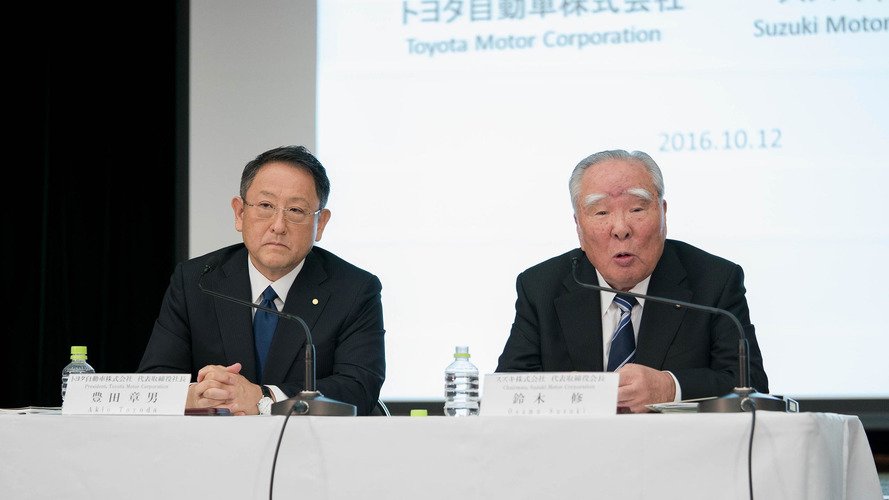Toyota and Suzuki continue to forge a tighter bond thanks to a new agreement that as the Japanese automakers looking towards a future business partnership. The firms' leaders (pictured together above) are now investigating possible collaborations on "environmental technologies, safety technologies, information technologies, and mutual supply of products and components."
Rumors in Japanese media suggest that Toyota and Suzuki could agree to a technological partnership first that would have the automakers developing autonomous driving systems together, according to Automotive News.
Toyota is already pushing ahead with self-driving tech and has a goal eventually of offering a vehicle that's incapable of causing a crash. The firm's Yui artificial intelligence system on models like the Concept-i might eventually make the dream into a reality by actively monitoring traffic.
As a much smaller automaker than Toyota, Suzuki hasn't been quite so quick to latch onto autonomous tech. However, a recent nomination for the Ignis as 2017 World Urban Car shows that the Japanese brand still knows how to make a compact model that critics love.
Suzuki and Toyota first announced the possibility of this deal in October 2016. At the time, the automakers said they were looking to cooperate in developing "environmental, safety, and information technology." The discussions came from Suzuki's desire to keep up with the rapidly changing times in the auto industry, and Toyota's wish to form more partnerships.
Toyota has been rapidly becoming a larger player in Japan's auto industry. For example, the company bought all of Daihatsu's shares in early 2016 and completely took over the firm. A new business plan aims to focus compact models on emerging markets.
Suzuki had a rough time in early 2016. A scandal over improper fuel economy testing in Japan forced the firm's CEO to retire. Later, investigators also discovered accounting errors that let the business pay lower taxes.
Related News



